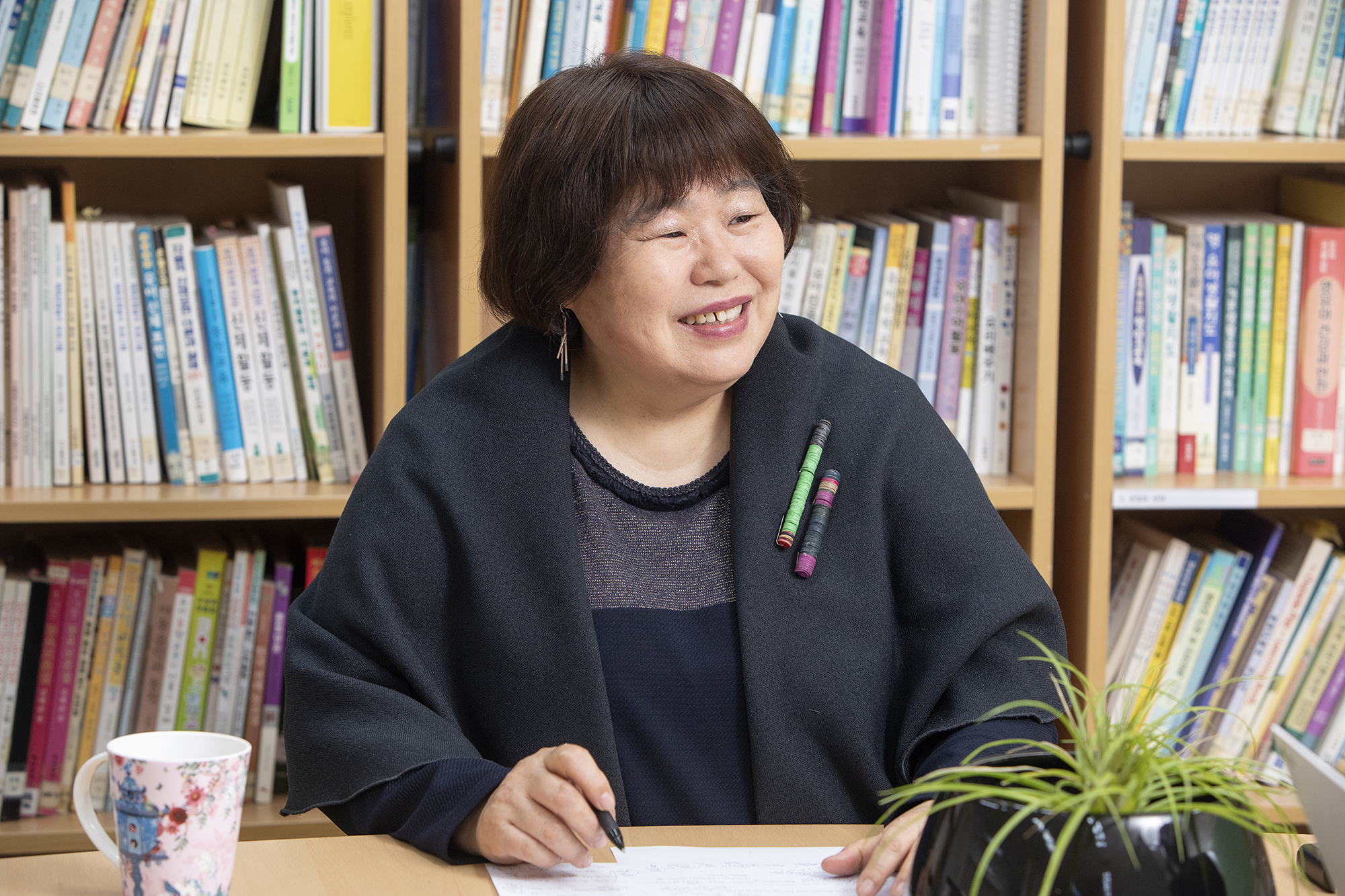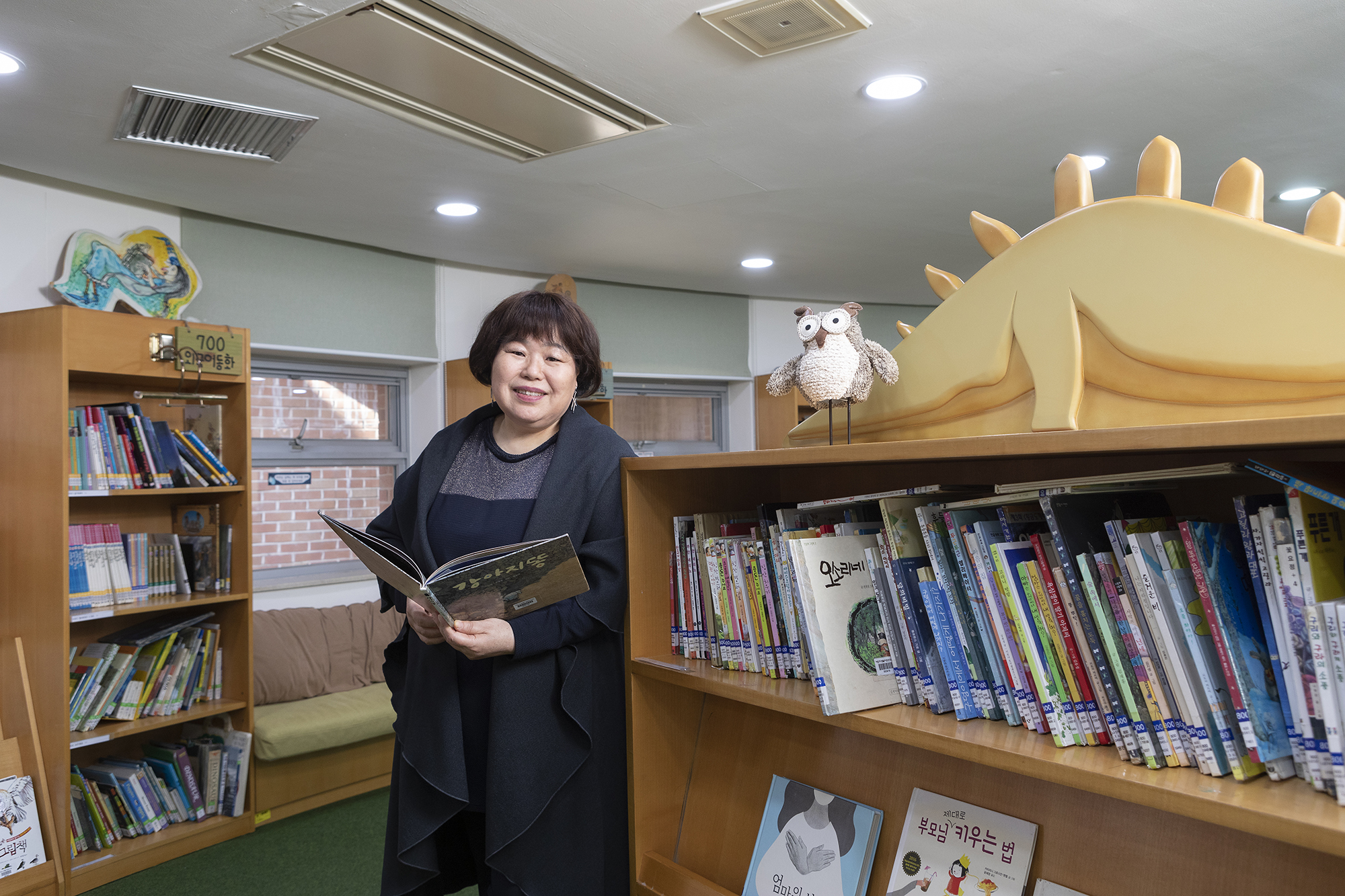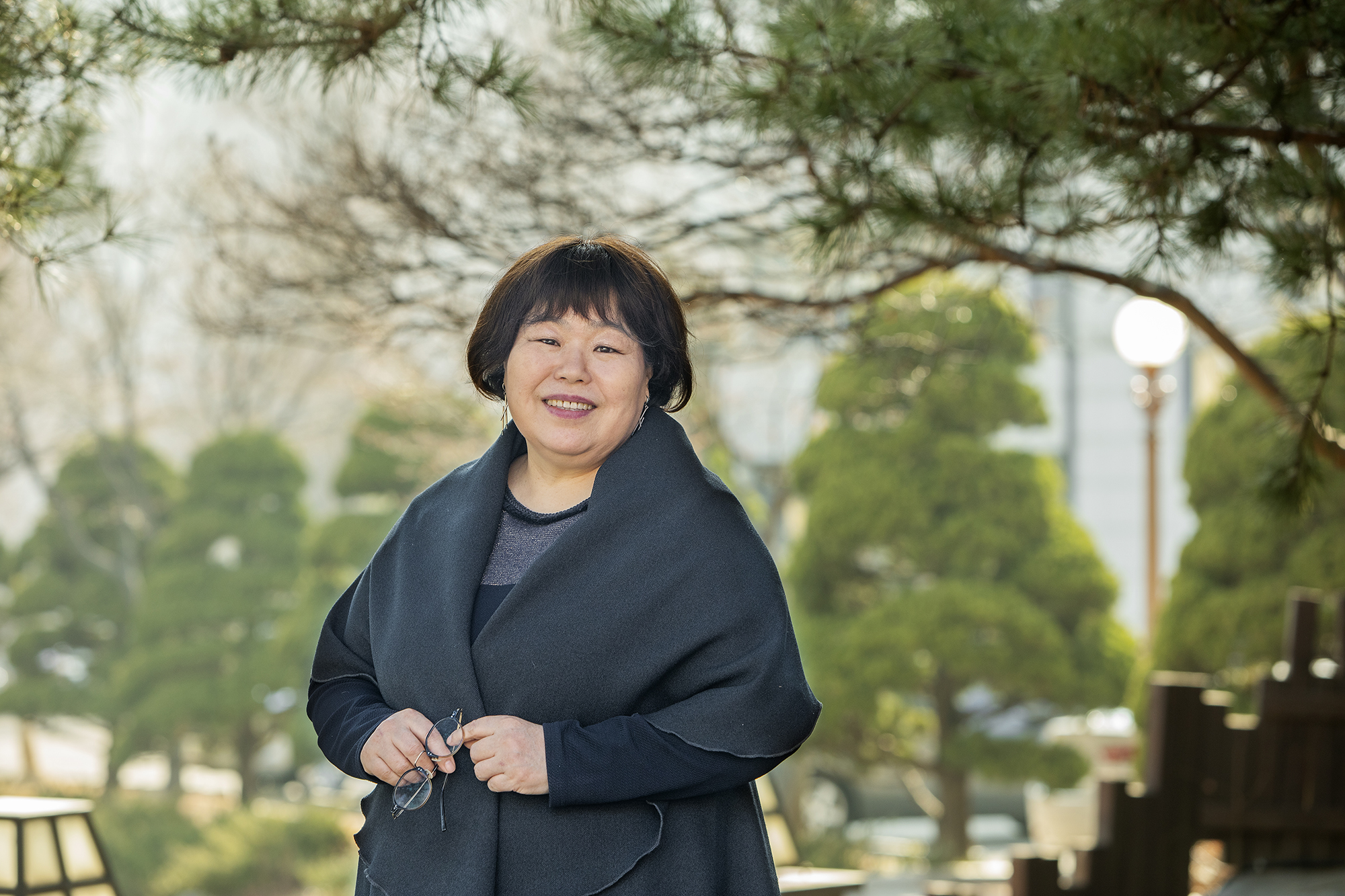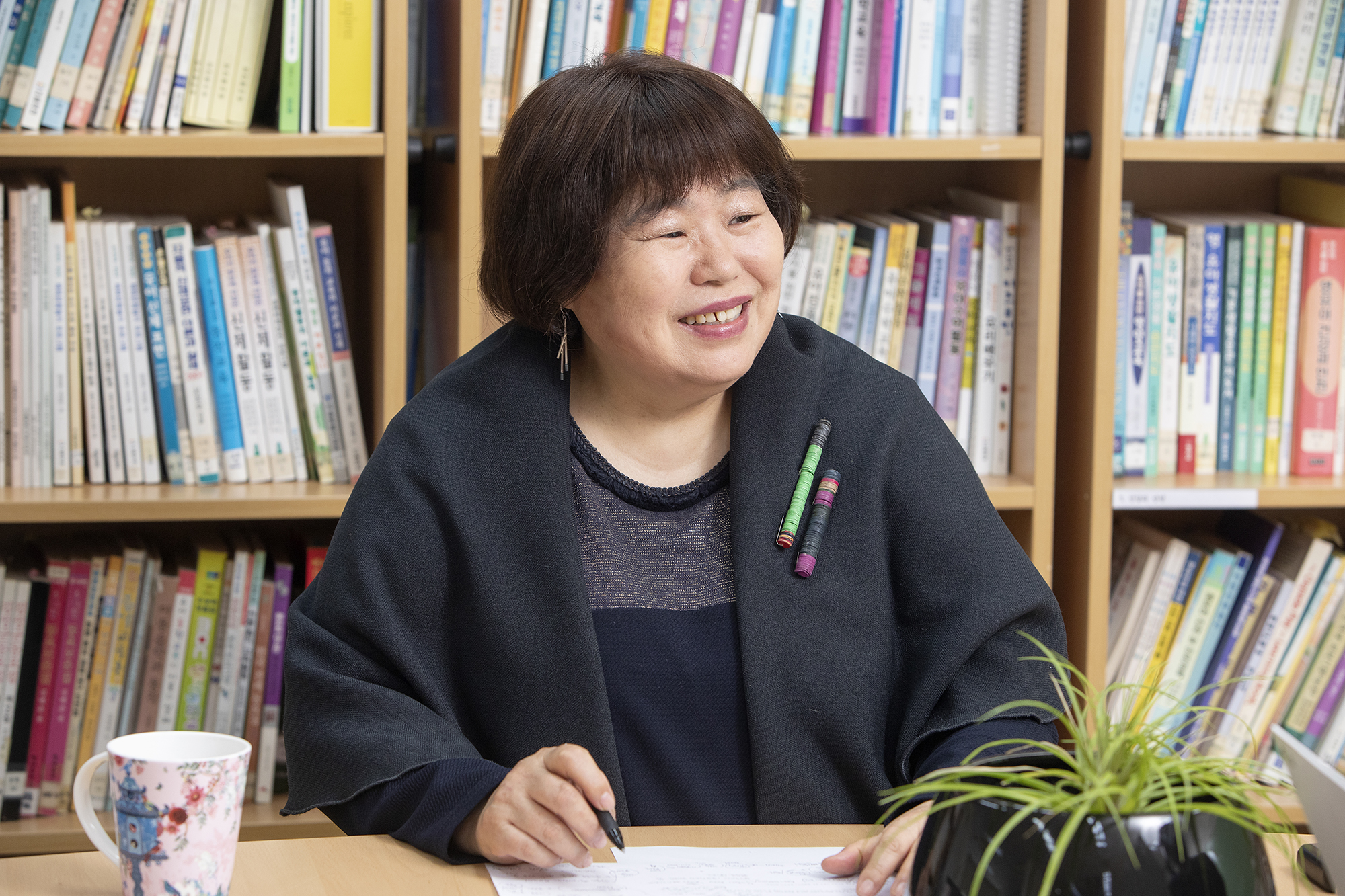- One Year Into COVID-19: ‘Family Rediscovery’ Through Essence and Value of Play March 11, 2021
-
'Understanding of Homo Ludens' with Prof. KIM Myung Soon, Director of Child Development Research Institute

The current status of COVID-19 appears in the headlines every day. The travel abroad around this season has become unthinkable, companies are constantly adjusting to working from home, and classes are constantly run online. Now that the time spent with the entire family at home has increased, it is necessary to adjust to daily life with them as well. In a pandemic era that does not seem to end anytime soon, we interviewed KIM Myung Soon, Director of the Child Development Research Institute and a professor of child and family studies at Yonsei University, in Seoul, Korea, on happiness and emotional stability within family without a mask.
Daily Life Changed by COVID-19; Interest and Understanding of Family
We have been ignorant and indifferent to the values of space and time shared with our family until today. We focused on attaining success in our work and studies, and lived in a standardized way set by the outside world rather than playing and having conversations. One year after the COVID-19 outbreak, our daily routine has changed and it has put ourselves into an unfamiliar situation where we meet people non-face-to-face outside home and face-to-face inside home. Professor Kim told us about the situation of the family that has changed since COVID-19 outbreak.
“Most of the intimacy that needs to be made within the family has been done outside home. We’ve been trying to find something outside instead of sharing our space and time with family. The family is the most basic unit of society. It is said that society can be healthy only when the unit is solid, but the main functions other than those of management and support were stopped. We couldn’t afford to connect with different interests, depending on age and gender, but now the family has become someone who we trust the most and meet face-to-face.”
Although ‘stay home lifestyle’ has increased drastically due to COVID-19, it is a series of unfamiliar times for families who have no communication other than conversations such as “Do this” and “Give it to me” even when the most comfortable people to face is the family you meet without a mask.
Finding the Joy of Sharing Time and Space Together…
“The space we most trust is now home. In the meantime, it has become a ‘family in need of play’ from ‘a family of management and support’ to follow the standards and goals set by the outside world. Play is possible in a familiar and intimate relationship. Finding and reaching an unfamiliar place is about learning, not playing.”
Professor Kim explains that the change in the family brought on by COVID-19 is that we used to learn from the outside and live with a goal of success, but met our family through a relationship of trust and began to see a new everyday life.
“We started seeing who each person is like and faced the reality of having to share familiarity. Of course, there will be trial and error and it won’t be natural. Abuse and violence also occur, but such a negative phenomenon is an inherent problem.”
Professor Kim explains the benefits of sharing time with family, using the example of her graduate student. The student started walking in the evening looking for trails that weren’t very crowded due to COVID-19, enjoying new routines and experiencing creative benefits.

Understanding and Intimate Happiness of Homo Ludens, the 'Playing Human'
They began to regain the value of being together with COVID-19 after forgetting the family’s function as an important community that shares intimacy. Professor Kim says that it brings various benefits as it appears as a play and then becomes a pleasure.
“Korea has followed its path according to the notions of standardization, public, and masses set by the outside world without any clear value by experiencing war and IMF. It achieved economic development and compulsory education afterwards, but the second-person perspective still dominates society in general.”
The second-person perspective is “You have to achieve your goal.”, “You have to meet this criterion.” It is a way to fit myself according to external standards. The era of pursuing such competitive superiority and success, where there is no room to think about the first-person perspective, is disappearing.
“As the 4th Industrial Revolution and COVID-19 came together, people started asking questions like ‘How should a child grow up’ and ‘Is it happy to live like this?’ It was to find the essence of human beings who enjoy play while thinking about the daily routines tailored for our family.”
Professor Kim gives an example of the rapid transition to a way that encourages individual specificity rather than being standardized in the public as the positive implication of COVID-19.
“As families share time and space, we see new patterns of life. We have been struggling with social pressures for success, achievement, and standardization, but now, we are attempting to enjoy the benefits and intimacy through play. There are three elements required for play to work. It’s a belief in the importance of time, space, and play. However, there are cases when the play doesn’t work even despite the three because there is no intimacy.”
She explains that playing requires the process of becoming intimate with family, and repetition of play brings benefits.
Benefits and Rewards of Play
“The greatest benefit of playing lies in the joy that people find and create for themselves. It fosters self-regulation and imagination. When a person who enjoys play discovers a dream, passion follows and they lead a life of their own in a creative way. The number of families who opened their minds and gained intimacy through creative play has increased considerably a year after COVID-19 outbreak.”
Professor Kim explains that such a play is a repetition of the pleasure one wants, and it is not a task of purpose that someone forces him or her to. It is said that when humans become bored, they have the power to awaken their energy and find pleasure. The play that uses five senses, not something gained through a competition, should be a first-person perspective that contains purposelessness and spontaneity. The way someone manages to reach an end is not play, but boring learning.
Two worries arise in this process. When we play, we feel anxious that we will fall behind others and wonder, ‘Wouldn’t I be unable to afford to play because of economic hardship?’ However, Professor Kim explains that the trend is changing.
“The knowledge society of the 3rd industrial revolution and the future society of the 4th industrial revolution are never the same. The condition of success that the times are compelling is changing, and we expect to see a whole new era in 2050. We have to ask the question, ‘Will the next 30 years correspond to the values thus far?’
We live in an era where we have to find answers to ‘Is there anything I want to do?’ rather than ‘What am I good at?’ The future society underscores that children who find what they want to do through play will succeed.
“Professor Mitchel Resnick of the MIT Media Lab explains the 4P model by developing creativity through play in his book 《Lifelong Kindergarten》. The best way to cultivate creativity is to cooperate with ‘Peers’ with a joyful mind like ‘Play’ to help them fall into ‘Project’ with ‘Passion.’ Professor Resnick created the concept of ‘Lifetime Kindergarten,’ meaning that all generations in the future will have to play their entire lives as if they were in kindergarten.”
Play Innovation Committee: For Guaranteeing Children’s Right to Play
Professor Kim also serves as the co-chair of the ‘Play Innovation Committee,’ organized by the Ministry of Health and Welfare of South Korea.
“It was in 2019 that play first appeared in Korea’s policy agenda. In the recommendations by the UN Committee on the Rights of the Child to the country, it expressed a serious concern about the very lack of children’s play due to social pressure on academic performance. It stressed the need to ‘ensure that all children have sufficient time and facilities for play and entertainment.’ The Play Innovation Committee was set up in reflection of the educational pressure that tamed and managed children in schools and academies, which trapped them in the system ruled by the older generation and created stereotypical thinking.”
The professor is contributing to the formation of a social consensus on the right to play by conducting activities to adopt play culture in local communities and schools in a committee participated by play policy-related ministries, such as the Ministry of Health and Welfare, Ministry of Education, and Ministry of Culture, Sports and Tourism. Amid the ongoing COVID-19 situation last year, 10 local governments, including Seoul and Jeonju, were selected as leading areas for play, taking the lead in the improvement of awareness of play as a basic right of children. The conference titled <Filling Children’s Right to Play in the Region> can be found on YouTube.
During her outside lectures, Professor Kim is often asked the question, ‘I don’t have time to play with my child because I’m busy. How much time do I have to spend for this?’ She suggests to try free daily play using the five senses for just two years. Play is not like a straight railroad, but it is rather a snowball. Although it is difficult to clump it at first, but once you make a snowball and roll it, a lot of snow clumps. We are used to taking classes and getting to our destinations, but play keeps us entertained and makes us want to continue experiencing spontaneously. Professor Kim has thus a mission to spread the right to play among children in Korea. She also has a passion and mission to change the perception of adults.

History of the Child Development Research Institute
“It has been 46 years since the Child Development Research Institute was established at our university. The Institute, which has been stressing that play is an important part of human life since 1975, has a special meaning for our society and our families who were only faced by competition. It pursued the value of play during the period when there was a fierce exam to enter middle school. Kids fully spend their playtime here before they leave. There is little time for teachers to convey knowledge through group education, and it is run as a curriculum where children develop self-selection, initiative, and curiosity through play.”
Professor Kim, the Director of the Child Development Research Institute at Yonsei University, is proud of the play education that makes children happy. Over 45 years, the number of graduates has reached 2,500. Children who grew up experiencing the benefits of play here are being grateful that they are living with their own problem-solving skills wherever they go. It is foreseen that those who have experienced the value of play will spread opportunities for play and change society together.
Finally, we asked the professor, an evangelist of children’s right to play, if there was any motto of her life.
“My favorite saying is that people and nature should not be commercialized. I’d like to add here not to commercialize play either. It is wrong to say that play doesn’t work well if a play subject doesn’t look great in a well-prepared environment. It’s possible to expand high-level play only with our own enjoyment, voluntary choice, and free participation that is not bound by rules and purposes. The more we play, the higher our imagination, the better the view of others, and the higher our resilience. And by increasing our physical activity, we become healthier and more pro-social. I think the person who meets all these five criterion will become a happy person who leads the future society.”
show mobile menu
mobile menu




